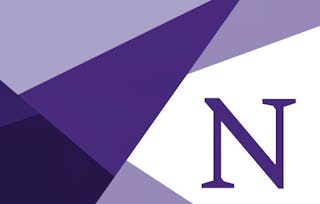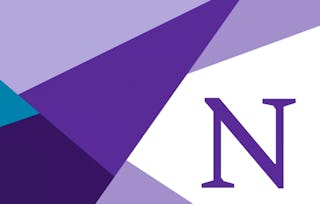To succeed in today’s knowledge intensive organizations managers need to understand how individual differences in personality, learning style and cultural values, group dynamics, organizational culture, and human resource management policies shape employee attitudes and behaviors. This course teaches managers creative problem-solving and ethical decision-making, change management, leadership techniques for enhancing social capital and influencing other organizational members, and management tools for multicultural and geographically dispersed teams.

Ends soon: Gain next-level skills with Coursera Plus for $199 (regularly $399). Save now.

Leadership & Organization Design
This course is part of Business Management Essentials Specialization

Instructor: Smriti Anand
3,056 already enrolled
Included with
(35 reviews)
Recommended experience
Skills you'll gain
- Diversity and Inclusion
- Cultural Diversity
- Cultural Sensitivity
- Business Communication
- Business Ethics
- Team Leadership
- Organizational Structure
- Decision Making
- Human Resource Strategy
- Virtual Teams
- People Management
- Conflict Management
- Business Leadership
- Influencing
- Innovation
- Leadership
- Leadership and Management
- Organizational Change
- Team Management
- Negotiation
Details to know

Add to your LinkedIn profile
41 assignments
See how employees at top companies are mastering in-demand skills

Build your subject-matter expertise
- Learn new concepts from industry experts
- Gain a foundational understanding of a subject or tool
- Develop job-relevant skills with hands-on projects
- Earn a shareable career certificate

There are 9 modules in this course
Welcome to Leadership and Organization Design! This module examines the best practices and historical evolution of management, alongside the concept and effective behaviors of leadership. It delves into both classic and contemporary theories of leadership, addressing the challenges contemporary leaders face and the impact of contextual factors. Additionally, it introduces evidence-based management and the actionable steps for its implementation, providing a comprehensive understanding of leadership in the modern era.
What's included
10 videos6 readings5 assignments1 discussion prompt
Module 2 focuses on recognizing individual differences and their impact on employee attitudes and behaviors, exploring research-based frameworks of personality and the limitations of personality testing. It also delves into Hofstede’s model of societal culture, the concept of cultural intelligence, and strategies for managing cultural differences. This module equips students with the knowledge to assess and enhance their cultural intelligence and effectively manage diverse workforces.
What's included
9 videos5 readings5 assignments
This module explores the complexities of managing a diverse workforce, distinguishing between deep-level and surface-level differences, and understanding the challenges diverse individuals face. It provides strategies for managing contemporary employment relationship and effective techniques for leading a diverse workforce, using a multigenerational workforce as an exemplar.
What's included
7 videos6 readings5 assignments
Module 4 covers the bases of power and specific persuasion techniques to develop influence in the workplace. It includes strategies for effective communication and navigating workplace politics, the role of political skills, and the importance of building social capital, addressing contemporary challenges related to social networks in the workplace.
What's included
8 videos5 readings5 assignments
This module examines the different types of decisions leaders make, major decision-making models, and perceptual biases that hinder effective decision-making. It also addresses ethical considerations within decision-making processes. Additionally, it discusses the antecedents and outcomes of workplace stress, strategies for stress management, the impact of emotions on employee attitudes and behaviors, and the importance of managing emotional labor.
What's included
8 videos5 readings5 assignments
Module 6 delves into classic and modern theories of motivation, identifying employee needs and applying this knowledge to motivate employees in the workplace. It covers goal setting, fairness perceptions, rewards and punishments, and unique employee motivation techniques. Additionally, it explores job and incentive design principles and their application in motivating individuals and teams.
What's included
9 videos5 readings5 assignments
In this module, students will learn about group processes and effective team leadership, including contemporary team structures and the ethical considerations in teams. It discusses the forms and consequences of conflict, strategies for conflict resolution, and specific approaches for managing conflict in virtual/global teams.
What's included
7 videos5 readings5 assignments
Module 8 focuses on the core tenets of organizational culture, its importance, and strategies to create and maintain a unique culture. It explores different types of organizational cultures, person-organization fit, and the relationship between culture, strategy, and structure. The module also addresses change management, the drivers of resistance to change, and techniques for leading change, alongside fostering individual and team creativity and innovation.
What's included
7 videos5 readings5 assignments
This module contains the summative course assessment that has been designed to evaluate your understanding of the course material and assess your ability to apply the knowledge you have acquired throughout the course. Be sure to review the course material thoroughly before taking the assessment.
What's included
1 assignment
Earn a career certificate
Add this credential to your LinkedIn profile, resume, or CV. Share it on social media and in your performance review.
Build toward a degree
This course is part of the following degree program(s) offered by Illinois Tech. If you are admitted and enroll, your completed coursework may count toward your degree learning and your progress can transfer with you.¹
Instructor

Offered by
Explore more from Leadership and Management
 Status: Free Trial
Status: Free TrialNorthwestern University
 Status: Preview
Status: PreviewNortheastern University
 Status: Free Trial
Status: Free TrialNorthwestern University
Why people choose Coursera for their career




Learner reviews
35 reviews
- 5 stars
85.71%
- 4 stars
8.57%
- 3 stars
2.85%
- 2 stars
0%
- 1 star
2.85%
Showing 3 of 35
Reviewed on Sep 21, 2024
Thank you Ms. Smriti for such a wonderful course.
Reviewed on Dec 8, 2024
Very Useful course for enhancing the skills for leadership positions

Open new doors with Coursera Plus
Unlimited access to 10,000+ world-class courses, hands-on projects, and job-ready certificate programs - all included in your subscription
Advance your career with an online degree
Earn a degree from world-class universities - 100% online
Join over 3,400 global companies that choose Coursera for Business
Upskill your employees to excel in the digital economy
Frequently asked questions
To access the course materials, assignments and to earn a Certificate, you will need to purchase the Certificate experience when you enroll in a course. You can try a Free Trial instead, or apply for Financial Aid. The course may offer 'Full Course, No Certificate' instead. This option lets you see all course materials, submit required assessments, and get a final grade. This also means that you will not be able to purchase a Certificate experience.
When you enroll in the course, you get access to all of the courses in the Specialization, and you earn a certificate when you complete the work. Your electronic Certificate will be added to your Accomplishments page - from there, you can print your Certificate or add it to your LinkedIn profile.
Yes. In select learning programs, you can apply for financial aid or a scholarship if you can’t afford the enrollment fee. If fin aid or scholarship is available for your learning program selection, you’ll find a link to apply on the description page.
More questions
Financial aid available,


